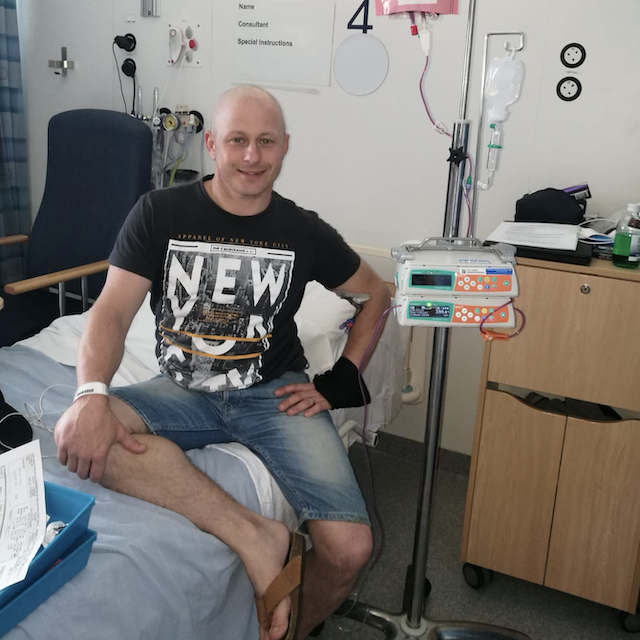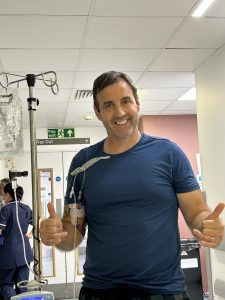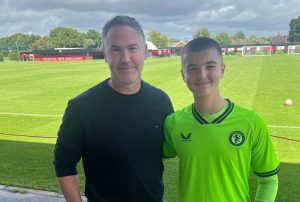
Adam’s Miles for Leukaemia
Patient Matthew talks openly about what is keeping him motivated during "the hardest time of his life".
Leukaemia is a form of blood cancer, and it can effect anyone, at any age.
Anyone can develop leukaemia at any age. Although it is more common in adults, leukaemia is the most common form of childhood cancer, with most children diagnosed under the age of 5.
Symptoms can include:
If you find that you’re suffering with any of these symptoms we would advise that you visit your GP to investigate the cause. However, these symptoms are common to many other illnesses so it is highly unlikely that acute leukaemia is the cause.

Cure Leukaemia helps to fund the Trial Acceleration Programme (TAP) across the UK, that connects leukaemia patients to potentially lifesaving trial treatments.
The money we kindly receive through donations and the support of the community helps to fund the research nurses.
At Cure Leukaemia, we believe there is a moral duty to test new drugs quickly and, if effective, make them available to patients across the region, the UK and the world.
We have spent the last decade developing a tried and tested formula for delivering clinical trials that works.
A specialist nurse costs £50,000 per year to fund, and by funding more nurses we can potentially save more lives.
Our Cure Leukaemia funded nurses play a vital role in helping to treat patients, and each specialist nurse costs £40,000 a year to fund.

Patient Matthew talks openly about what is keeping him motivated during "the hardest time of his life".

Patient Matthew talks openly about what is keeping him motivated during "the hardest time of his life".

Cure Leukaemia is thrilled to announce that Cassidy Group has joined as a proud partner, taking on the role of back-of-shirt sponsor for the highly anticipated 'Run The Nations' event.

Hear the story of Keanu Black and his battle with Leukaemia, and why his parents, James and Hannah are getting behind Cure Leukaemia for Blood Cancer Awareness Month